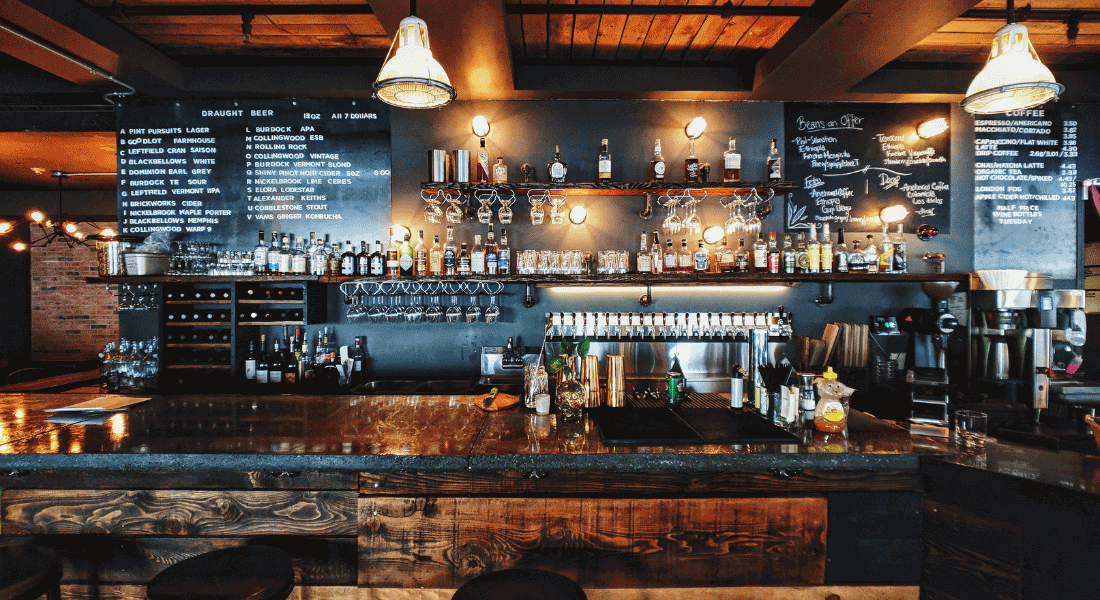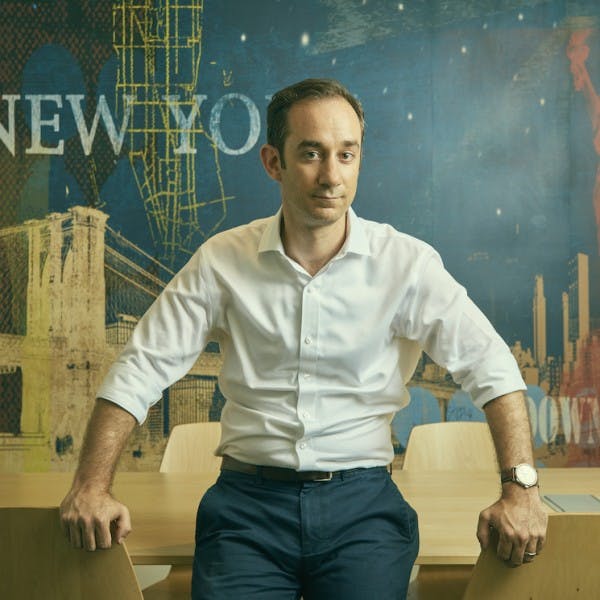NYC and Beyond: The Hospitality Issues That Matter Now and the Future of Hospitality

Earlier this year, I was lucky enough to sit down with Andrew Rigie, Executive Director of the New York City Hospitality Alliance, to get his take on current issues affecting the hospitality industry.

For those out there who don’t already know, Rigie is a force to be reckoned with in the New York City hospitality industry, getting his first taste at a young age working at his family’s third-generation bakery in Queens, N.Y. He went on to work in multiple positions within the industry before joining the New York State Restaurant Association in 2004. Here, he recruited members, was a valued consultant to area restaurant operators, and was at the helm of many grassroots movements, eventually becoming Executive Vice President of the association in 2009.
In 2012, Rigie took the immense knowledge he had gained from working inside and on behalf of the industry to become the founding executive director of the independent New York City Hospitality Alliance. Over the years, the Alliance has grown into New York City’s go-to source for delivering information, education services, and representation in government and media to thousands of restaurants and nightlife venues across the city. Rigie also serves on multiple advisory boards ranging from education to regulation.
So, needless to say, Rigie is a reliable wealth of informed information, and I was eager to get his opinions and outlook on the industry’s current state and what he believes is in its future. Here’s what he had to say.
Labor shortage in the hospitality industry
Kate Kennedy: Let’s begin by discussing the big issue of labor shortages happening in the industry right now. What is your opinion on why this is happening, and what do you think operators can do to lessen the blow?
Andrew Rigie: The restaurant industry is highly labor-intensive, and even before the pandemic, so many restaurateurs would say they were already short-staffed, particularly among positions like line cooks. When the pandemic hit, it devastated the industry and eventually shut it down. In places like New York City, many people working in restaurants weren’t originally from New York, and they left the state. Especially the younger generation. Some went back to where they’re from, and some went back to live with their parents. Other people — who were from the city — stayed but found jobs in other industries.
The other day, I was in an elevator, and a man recognized me. He said, “You’re Andrew, the restaurant guy, right?” and I said, “Yes,” and he told me that he had worked as a cook in the city at a restaurant for 12 years but had lost his job at the start of the pandemic and was forced to look for work elsewhere. He was currently the building maintenance man for the building we were in. He said he missed the industry, but he has more regular hours with this job, and he’ll eventually become part of the building workers union and, truthfully, make more money and get more benefits. And beyond the compensation and hours, he was happy that he could now spend more time with his wife and young children. This is just one example of thousands of similar situations.
So, I think many things could change that would benefit the workers of the industry. Still, many things can’t change, like working nights, weekends, holidays, being on your feet, being in hot kitchens, and, especially now, dealing with an angry public. So much has been asked of restaurant workers in the past few years. They got shut down, reopened, and again had to deal with ever-changing government rules, regulations, and mandates, dealing with angry customers, etc.
When attracting and retaining employees, operators face financial realities regarding compensation and benefits like insurance that they can and cannot provide. That may be a complicated economic reality for them to grapple with. But there are non-financial benefits that can be provided to attract and retain employees. The first is creating an open, communitive, and supportive work environment where employees feel comfortable and excited to be a part of.
Operators should provide expectations of what employees can anticipate when working at their restaurant. How are they investing in their employees’ professional growth? Are they allowing them to participate in wine and food tastings? Can you offer to take them on trips to the markets and farms where you procure your goods? Is there a ladder of growth at this restaurant and transparency on the compensation for growth?
Yes, the industry is known for being open nights, weekends, and holidays, but within that schedule, can you provide your employees with more support and flexibility to still have a personal life and a family life? Suppose you are a restaurant group growing and opening up new locations. Do you offer your employees opportunities to go and work at new locations or travel to these locations? Restaurant owners can provide many things outside of monetary compensation that will attract employees and make them want to stay.
I think that workers want and deserve more than they have been provided in the past, and the pandemic was able to put that front and center for them. Many of the successful restaurants that have come out of the pandemic recognize these issues and are doing anything they can to offer the perks I mentioned, among other things.
Mental health in the hospitality industry
Kennedy: Do you think we’re turning a corner in the industry where operators understand the importance of mental health and might be more willing to offer their employees the benefits they need to maintain a healthy lifestyle?
Rigie: There’s a lot of interest and desire to create more long-term, sustainable jobs within the industry, but that positive intent often then smacks up against the reality of a balance sheet. We’re talking about small businesses with low margins who have recently been struggling to keep their doors open throughout the pandemic and probably have more debt than before. Not to mention that food prices have skyrocketed, making margins even smaller. They are caught in an impossible situation. The cost of health care, whether mental or otherwise, in the United States is outrageous, and the fact that it needs to be employer-provided makes it unattainable, no matter how much businesses want to offer it.
The Hospitality Alliance has worked with the New York City’s Office of Nightlife to provide mental health care to people working in the restaurant and nightlife industry. That’s undoubtedly very important to us and the industry as a whole. But trying to find psychologists and more intense mental health care is expensive, and it’s complicated to navigate our system.
There are not a lot of great answers to this question. In the end, it’s not that they don’t want to offer it; there are just so many challenges, including its high cost and other U.S. healthcare issues.
The future of the hospitality industry
Kennedy: I’ve been hearing a lot of talk about how the industry will never recover or come back to its pre-pandemic state. Many people believe that this reality we’re in now will become the new normal for the hospitality industry. I tend to think about things from a more favorable light, and I’m curious to know how you feel about this. Do you think the reality we’re in now is our new normal? Should we forget about how the industry was in 2019 and move on?
Rigie: In short, my answer is no. Throughout the pandemic and all the doom and gloom and countless predictions, I’ve been pretty firm that unquestionably, New York City’s restaurant industry — and the hospitality industry as a whole — will come back and eventually come back better than ever.
I’ve always been most concerned not with how it will come back collectively but how we save as many of these small business owners as we can that have struggled during the pandemic to ensure they get to the other side to enjoy the future.
People eating, drinking, dancing, and socializing are in the DNA of humans, cities, and cultures. The industry is returning, especially when we’ve been told to be socially distant for so long; all we want is to do is socialize. I think there is pent-up demand — it’s just going to take a long time to get to a place where everyone is back, and everyone feels comfortable being out.
Ultimately, it’s not a question of if the industry as a whole recovers. Of course, it does. The question is, “How do you save as many of the people who struggled through this crisis and get them to the other side?” Unfortunately, we’ve already had a lot of loss and a lot of misery, but the industry will recover. The riddle we must solve is, “How do we build back in a smarter and more sustainable way?”
For more information regarding Rigie and all of the amazing work the New York City Hospitality Alliance has done, or to find out how you can get involved, check out their website at thenycalliance.org.